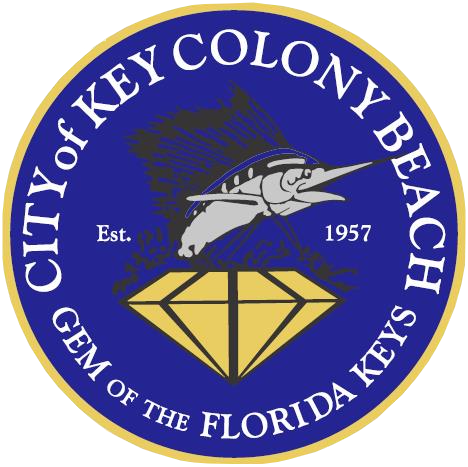Date: December 12, 2022
THE LAW OF DERELICT VESSELS AND “CHUGS”
Dear Property Owners and Concerned Citizens:
As many of you are now aware, there has been a constant flow of migrant landings in Key Colony Beach, and typically they arrive in “chugs” (non-registered vessels), which end up abandoned on one of our beaches. This has led to a number of questions about whose responsibility it is to remove these vessels.
On December 1, 2022, Caption Dupree, command leader for FWC Monroe County, attended the City Commission meeting and provided the following legal analysis on how to deal with both registered and non- registered (chug) vessels:
1. If any vessel ends up derelict in state waters, that is anything below “high mean tide”, then it becomes the responsibility of FWC to remove this vessel. However, FWC is bound to follow legal protocol and must make several attempts to locate the owner of the derelict vessel before removing it. This applies to both registered and “chug” vessels. This process can take 60-120 days under normal circumstances. Captain Dupree also noted there are 50 FWC Officers for all of Monroe County performing all law enforcement tasks, and there are literally hundreds of derelict vessels in Monroe waters. In short, FWC removal of derelict vessels is a time-consuming process.
2. If a vessel ends up derelict on a private beach/property, that is anything above “high mean tide”, then removal becomes the responsibility of the property owner, not FWC or local municipalities (KCB, Marathon, etc.). In other words, if any vessel ends up on your private property if becomes your problem. This rule of law is both inconvenient and a bit expensive, but it is the law.
For all vessels, state law requires a 60-day notice to the owner before towing, and cooperation with the owner if they attempt to recover the vessel. See Florida Statute Public Nuisances, 823.11, sub. (5), When a derelict vessel is docked, grounded, or beached upon private property without the consent of the owner of the property, the owner of the property may remove the vessel at the vessel owner’s expense 60 days after compliance with the notice requirements specified in s. 328.17(5). For registered vessels, FWC or the local police may at least help you identify the owner. A responsible boat owner will try to resolve the issue for you or contact insurance to adjust the cost.
As for unregistered “chugs”, it is most unlikely these boats are going to be claimed by any “owner” and there is no way for you to search records. In fact, they are effectively abandoned as soon they make landfall. The above law still applies, but immediate removal by you, the property owner, is within your discretion.
3. For derelict vessels that end up on city beaches and property these obviously become the responsibility of that municipality.
4. One last advisement before anyone decides to move that derelict vessel from their private property out into the water, or onto municipal property: Florida Statute 403.413, Litter Law, makes it a felony crime for any person to dump litter (this includes a vessel) in any manner or amount:
(a) In or on any public highway, road, street, alley, or thoroughfare, including any portion of the right-of-way thereof, or any other public lands, except in containers or areas lawfully provided therefor. When any litter is thrown or discarded from a motor vehicle, the operator or owner of the motor vehicle, or both, shall be deemed in violation of this section;
(b) In or on any freshwater lake, river, canal, or stream or tidal or coastal water of the state, including canals. When any litter is thrown or discarded from a boat, the operator or owner of the boat, or both, shall be deemed in violation of this section; or
(c) In or on any private property, unless prior consent of the owner has been given and unless the dumping of such litter by such person will not cause a public nuisance or otherwise be in violation of any other state or local law, rule, or regulation.
Not only does moving a grounded derelict vessel out to state waters constitute a felony crime, but it also creates a hazard of navigation, exposing the oner who created the hazard to legal action in the event of injury. Do not try and evade private property owner responsibility by making the “chug” someone else’s problem.
It should also be noted these “chugs” often have toxic/hazardous fluids in them such as gas, oil, etc. These fluids, and other garbage, must be removed from the vessel and discarded according to landfill and garbage removal rules and regulations. Don’t put any of these things in the water either.
If you have any questions about these policies and procedures, please do not hesitate to contact me directly.
Barry G. Goldman
Code Enforcement Officer
City of Key Colony Beach
P.O. Box 510141
Key Colony Beach, FL 33051
(305) 289-1212, ext. 4
codeofficer@keycolonybeach.net

